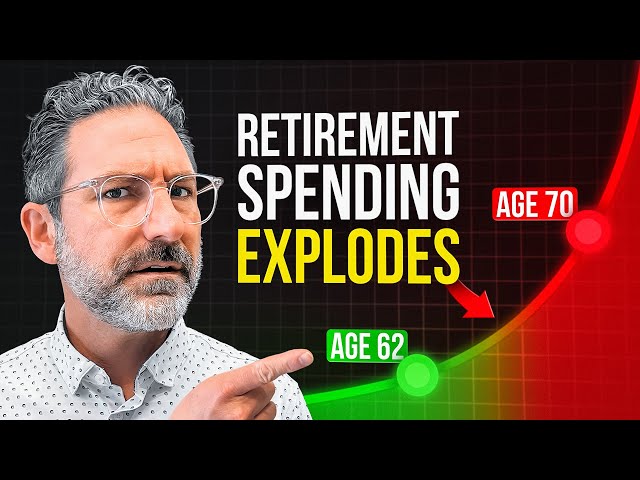You’d think the hard part ends at retirement.
After decades of working and saving, it should be time to relax and enjoy the rewards. But more and more retirees are burning through their savings — even those who looked well-prepared on paper.
According to the Employee Benefit Research Institute, the number of retirees spending more than they can afford has nearly doubled since 2020, rising from 17% to 31%. That’s nearly one in three retirees overspending (and those are just the ones willing to say it out loud).
68% percent of retirees with debt are carrying credit card balances. Only 59% have any emergency savings at all, down from 69% just a few years ago. And a full half or retirees say they didn’t save enough to live, even after a lifetime of work.
At Brindle & Bay, we’ve worked with hundreds of retirees. What we’ve seen in our experience — and what the data now confirms at scale — is that the biggest risk to your retirement isn’t inflation or market volatility. It’s your own behavior: the habits, assumptions, and emotional tendencies that shape how you spend your money.
External forces always play a role, but the real danger is in retiring without a clear strategy. Imagine maintaining your old lifestyle on new income and realizing too late that the math doesn’t work. No one wants that to be their retirement story.
In this post, we’ll break down the five personality types most likely to outspend their savings in retirement, and what you can do right now to avoid the traps associated with each one.
The Optimistic Undersaver
This retiree believes “everything will work itself out. They assume expenses will stay flat, emergencies won’t happen, and investment returns will stay strong.
They don’t plan for turbulence, so when it comes, they’re unprepared. They often carry credit card balances and respond to early warning signs with a shrug and a smile: “It’ll be fine.”
The solution here is to replace hope with structure. A written income plan with conservative assumptions and stress-tested scenarios can provide clarity and a much-needed reality check.
The Status Maintainer
These folks are determined to keep living exactly as they did while working. The same cars, vacations, and spending habits. To them, cutting back feels like failure.
They’re not reckless, they’re just emotionally attached to a lifestyle that no longer aligns with their income. Their solution is to establish a “retirement paycheck.”
Setting up structured monthly withdrawals that mimic a salary creates healthy spending guardrails. It forces prioritization and retains the discipline of living within a paycheck.
The Anxious Spender
Retirement isn’t necessarily stress-free. There are questions of identity shifts, anxieties around market uncertainty, fear of running out of money, and more. For some, spending becomes a coping mechanism. That new gadget, meal out, or impromptu trip isn’t really about appreciating luxury, but about soothing anxiety.
Over time, emotional spending can quietly balloon into serious debt. The solution isn’t math, but systems: tools like withdrawal guardrails, automatic income planning, and advisor accountability help reduce impulsive decisions and bring more peace to your financial life.
The Entitled Expecter
This personality believes retirement should be the big payoff. They feel they’ve earned a certain lifestyle and refuse to let go of it, even when the numbers clearly say they should. They often resist budgeting, maybe even viewing it as beneath them.
This personality type needs to redefine what fulfillment looks like. It’s not about living the same way they did at 45. It’s about living intentionally and aligning your spending with your most meaningful values.
The Unprepared Improviser
These retirees enter retirement without a clear plan. No budget, no withdrawal strategy, no roadmap. When expenses pop up (as they always do), they scramble and overspend. This is the personality type most prone to lifestyle creep without realizing they’re drifting into dangerous territory.
These people need structure now. They need a spending plan that reflects clear priorities. They need to think ahead about how to respond to unexpected expenses. Retirement isn’t pass/fail, but execution is everything.
Ready to Protect Yourself?
The best time to address these personality patterns is before you retire. That means asking yourself some hard questions now: do you avoid budgeting because it feels restrictive? Do you rely on spending to feel good or reduce stress? Do you tie your success to living a certain lifestyle? Do you assume you’ll figure out your retirement later? Awareness creates the space for action.
At Brindle & Bay, we build retirement strategies that actually work. If you’re ready to identify your risk factors and design a plan that gives you clarity, confidence, and control, let’s talk. Just schedule your no-cost consultation with our team by clicking here.







.jpg)




